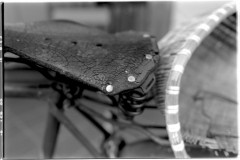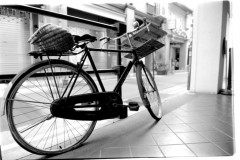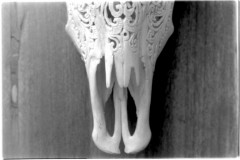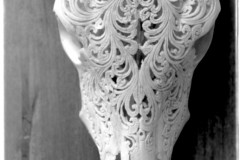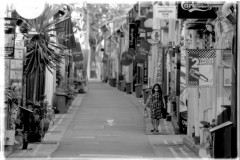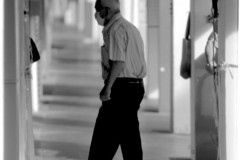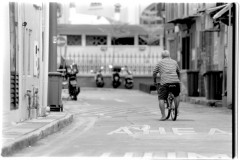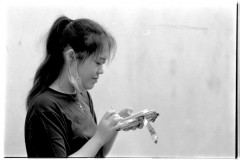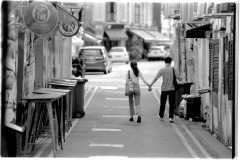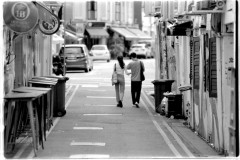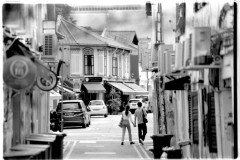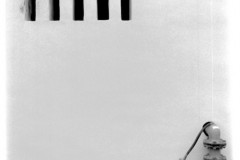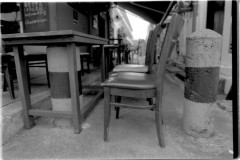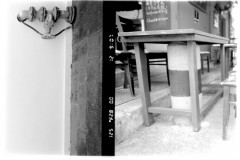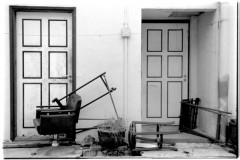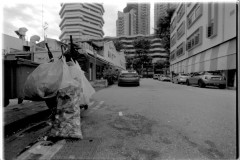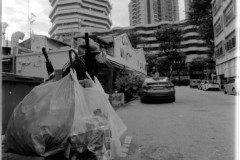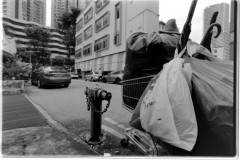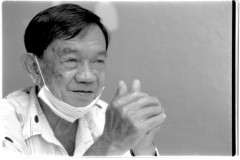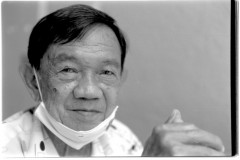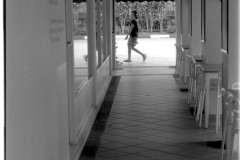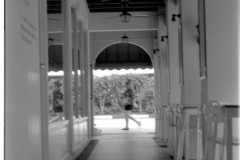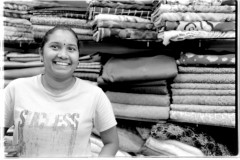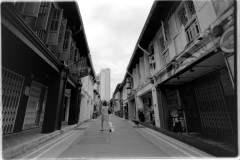
Can shooting film make you a better photographer? Absolutely it can! While there are benefits to learning with a digital camera, I think everyone should grab a roll of film once in a while and go out and capture some images.
What is it about film that will make you a better photographer compared to digital photography?
Film photography puts limits on your photography.
You are limited with the number of photos you can capture. You are limited because you can’t see the photo after you capture it. You are limited by the film in the camera.
In this case, the limits aren’t necessarily bad. You are forced to work within these limits and that is precisely what will help you to be a better photographer.
Limited Number of Images
Knowing that you have a limited number of images is perhaps the most important limitation of film photography. Before I had digital cameras, I noticed that the last 5-6 images of my roll of film were often my best images. This was because I was getting to the end of the roll and was running out of shots and I slowed down to make every frame count.
Now that I shoot with mostly digital camera and there is no ‘end of the roll of film’, I don’t have to slow down. When I put a roll of film in my camera, I am very aware right from the beginning that I have a limited number of frames that I can capture.
So I when I put the roll 100 Tmax into my Nikon F6, right from the beginning, I slowed down and carefully composed my shots. I made sure there weren’t any distractions creeping into the edges of my frame. I examined and re-examined the background. And I thought of a few different possibilities for each shot.
Slowing down makes you a better photographer.

Limited Because You Can’t Review Your Images
The reality of photography today is that you are able see the image that you just captured. There is even a name for when people look at every picture on the back of their camera right after they capture it: Chimping.
It is called chimping because people act like a chimpanzee who is excited to see the image magically appear on their screen. Some people even exhibit excited noises much like a monkey might as they point to the image 🙂
There is no chimping in film photography. You won’t know if you get it right or not until your film is developed. Someone might have blinked when you press the shutter. You may not have held still during the exposure and the image may be blurry. Sometimes your camera may get the exposure incorrect.
So you as a photographer have to be aware of situations where the camera may get it wrong. If there is a lot of light and shadows, your camera can’t expose properly for both. Or maybe there is a mostly white subject that your camera may under expose or a mostly black subject that your camera will over expose.
Luckily, for my challenge, I was using the Nikon F6 which has one of the best light meters ever put into a film camera. But I still was aware of the situations that might give me problems.
Knowing when a camera may have trouble capturing an image will make you a better photographer.

Limited By Your Film
Not only does your film limit the number of images you can capture but you are also limited in other ways. First of all, you are limited by the type of film you are using. Is it black and white? Colour negative? Transparency/ Slide film?
What is the ISO or sensitivity of your film? Most film is between 100 and 400 speed as this gives the best results and least amount of grain. With digital cameras you can change the ISO from shot to shot but with film you are stuck with the film in your camera. So if you have a scene that has less light (like indoors), you may have very slow shutter speeds.
This happened to me in my challenge where I captured an image of a woman in a fabric shop. My aperture was wide open (f2.8) and I was only able to get a shutter speed of 1/15 of a second. This really tested my ability to hold the camera still.

Sometimes these limits of your film mean that you can’t capture the image that you wanted to and you have to try something else and be flexible.
Knowing how to be flexible in different situations will make you a better photographer.
The Film Challenge
Check out how the I fared in the black and white film challenge.
Let me say that there definitely are benefits to digital. I think it is a great tool for learning. You can see how your photo turned out right away. You can adjust your next shot from the feedback from your last shot. You can show and share your images with your subjects. You can change the sensitivity of you sensor from shot to shot. A digital camera is a great learning tool.
But a film camera is also a great learning tool. Each frame is a challenge.
So challenge yourself. Get a roll of film. Slow down. Embrace the limitations.
Make every frame count. You will be a better photographer because of it.
Thanks for all your support. As an Amazon Associate I earn from qualifying purchases.
